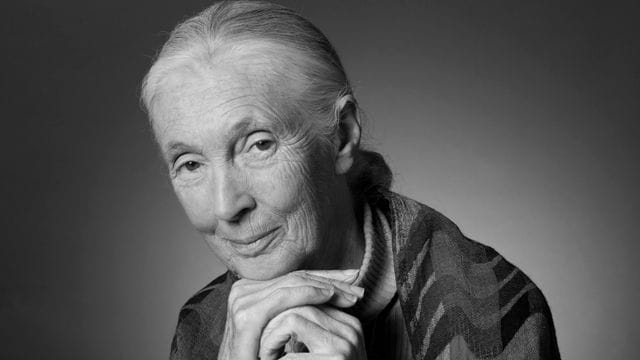Jane Goodall Remembered

Jane Goodall’s passing gives me pause to reflect on the impact of her work and on our brief encounter years ago.
About fifteen years ago, my daughter invited me to an event at UC San Diego celebrating the local chapter of Roots and Shoots, the youth program founded by Goodall herself. My daughter led that chapter, and the keynote speaker that evening was none other than Dr. Jane Goodall.
To my surprise, I was seated next to her at dinner.
Goodall had been a childhood hero of mine, first introduced to me through National Geographic. Those yellow-bordered magazines were a gateway to the wider world, and I was particularly captivated by stories from Africa. I also devoured Tarzan of the Apes, a book that, as it turns out, Jane also described as influential in her early years.
In person, she was exactly as you might imagine: calm yet commanding. Her voice was measured, her eye contact steady. Small in stature, she carried an unmistakable sense of presence. She spoke sparingly but with great intention, thoughtful, curious, and completely authentic.
Her mission was clear and unwavering: to protect the planet, to defend nature and all living beings, especially the animals who have no voice of their own.
For those unfamiliar, Dr. Jane Goodall (1934–2025) was a pioneering primatologist, ethologist, and conservationist whose groundbreaking work with chimpanzees in Tanzania reshaped our understanding of the animal kingdom and our place within it. Her lifelong advocacy inspired millions to take action for environmental and animal welfare causes.
Recently, a posthumous interview titled “Famous Last Words” was released—a private conversation recorded before her death, meant to be shared only afterward. In it, she speaks more freely than ever before: candid about her frustrations with world leaders, gracious toward loved ones, humble in the face of her fame. She seems almost puzzled by the adoration she receives.
It’s a moving reminder of her humanity and her lifelong commitment to truth, compassion, and curiosity.
Thank you Jane Goodall.
John Bradley Jackson
© Copyright 2025
